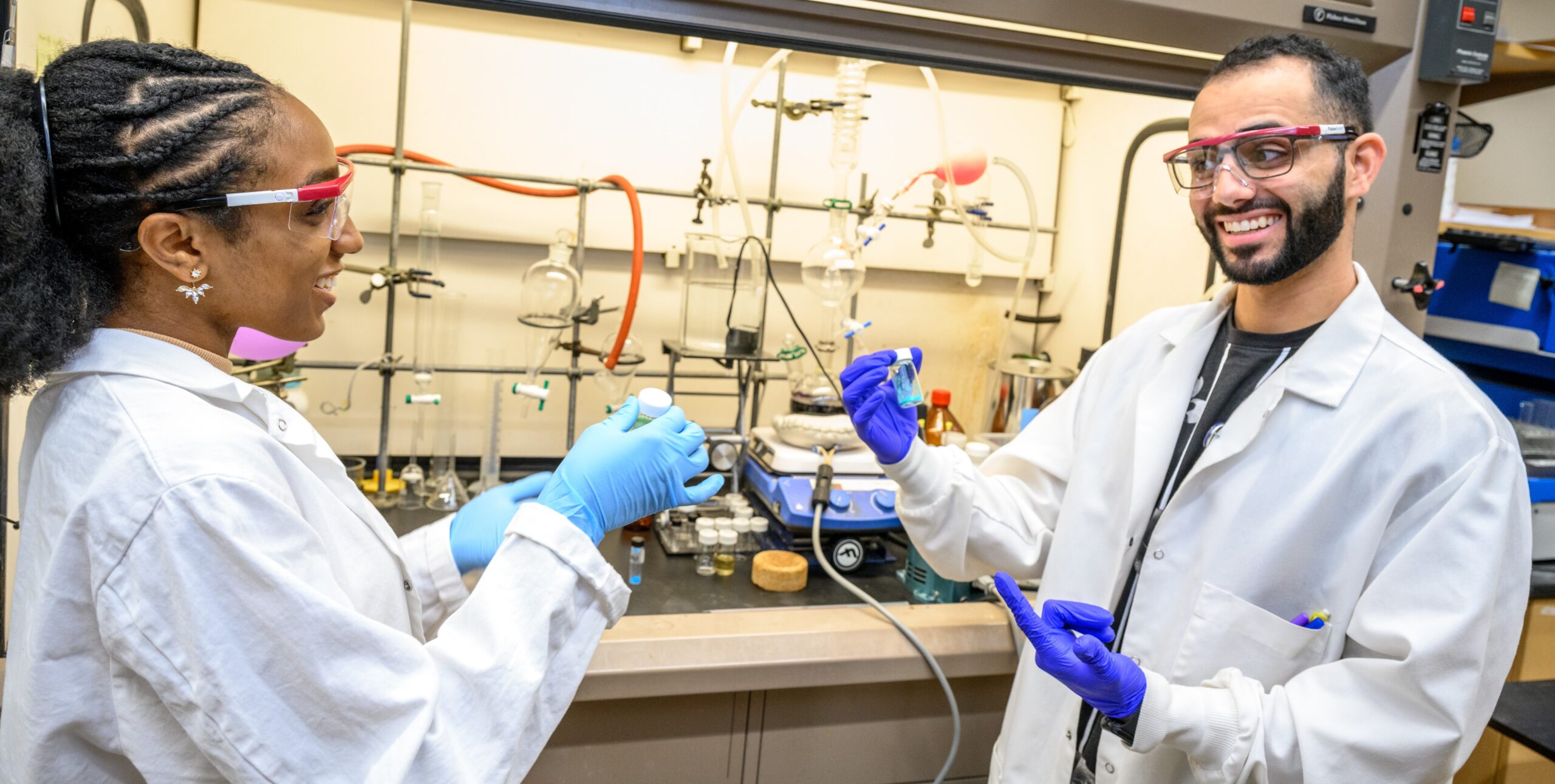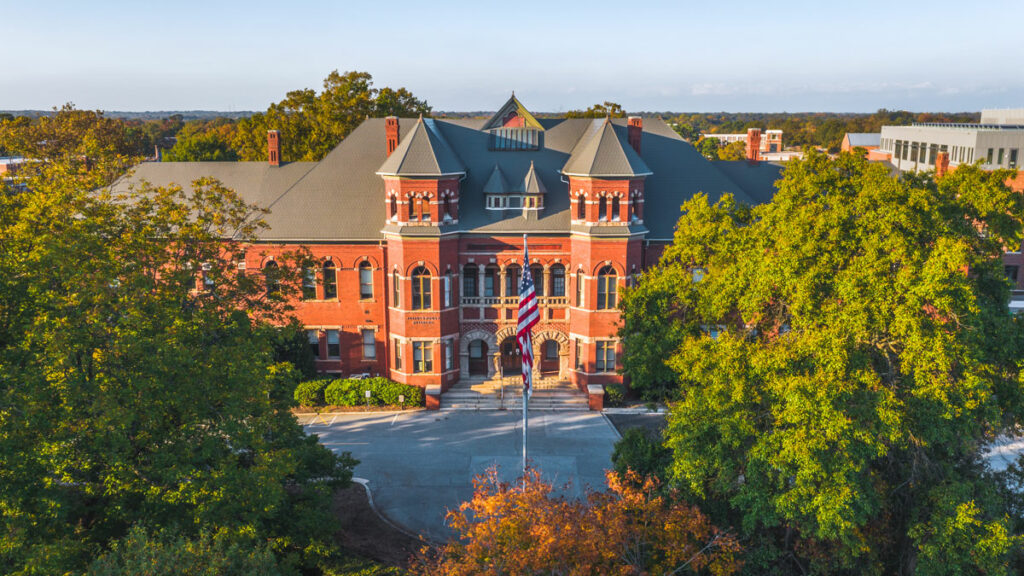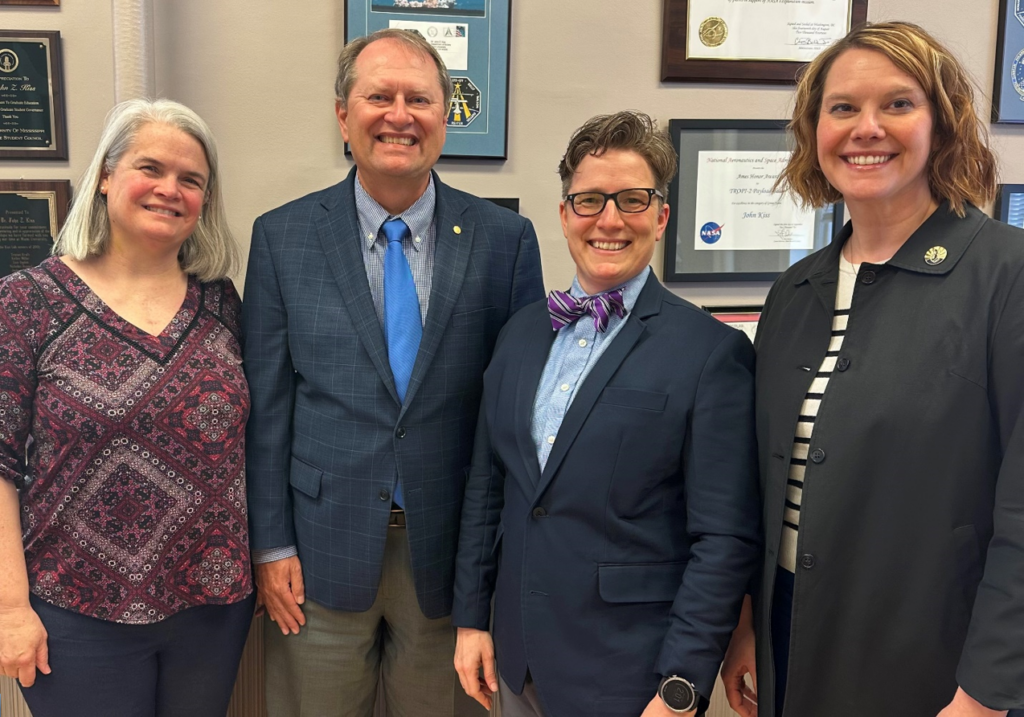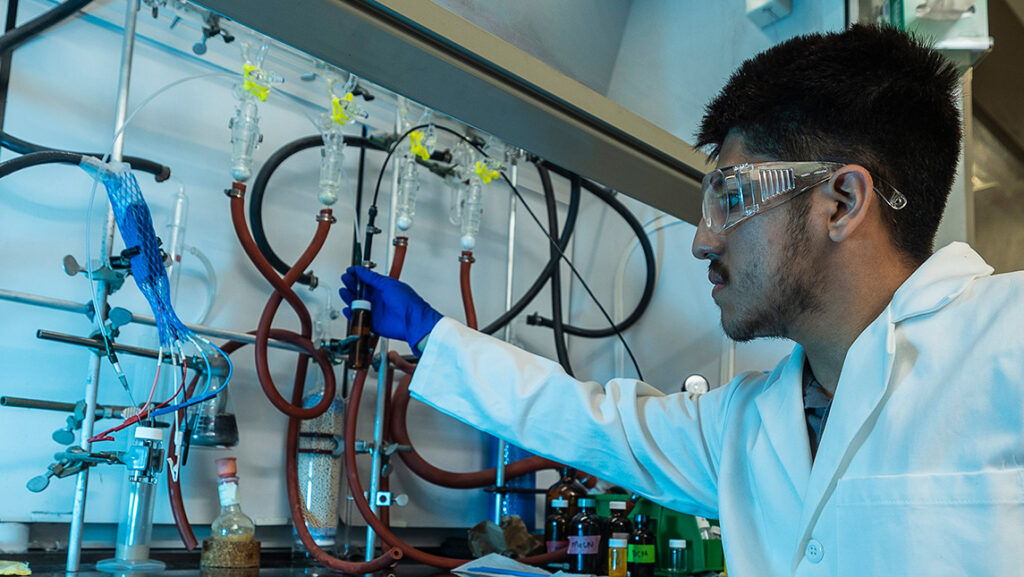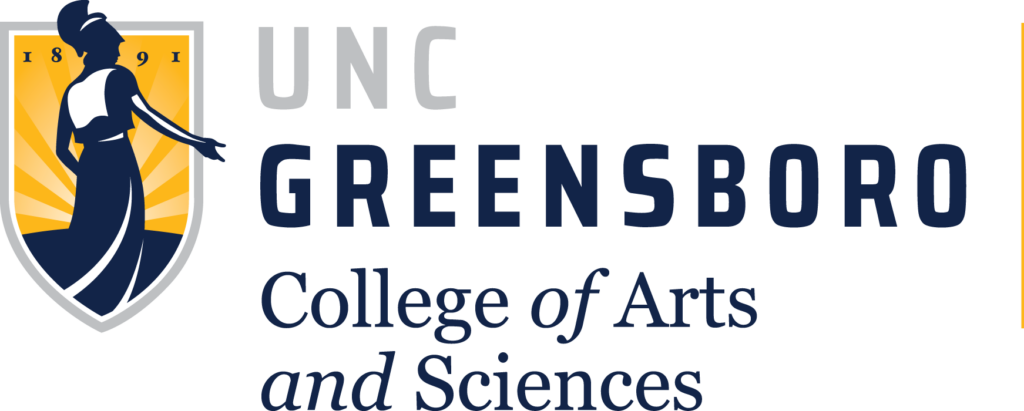Dr. Maia Popova and Dr. Mitchell Croatt have received a new five-year, $967,000 grant from the National Science Foundation to explore ways to improve chemistry instruction and student learning in laboratory courses. The project — Broadening Instructional Innovation in the Chemistry Laboratory through Excellence in Curriculum Development — is a collaboration with St. Mary’s College of Maryland, Dr. Kelly Neiles Lead PI. The grant is funded by NSF’s Institutional and Community Transformation (IUSE) program.
Dr. Popova, Assistant Professor in the Department of Chemistry and Biochemistry, is the lead UNCG PI on the project, while Professor and Department Head Dr. Mitchell Croatt is Co-PI.
Learn more about the project on the Popova Research Group website.
The abstract below is published on NSF’s Award page here.
This project aims to serve the national interest by offering a professional development program to equip chemistry instructors and curricula developers with evidence-based teaching practices in chemistry laboratory courses. Currently, there are no large-scale or nationwide professional development opportunities focused on reforming chemistry laboratory curricula. This comprehensive year-long professional development program will empower chemistry educators to enhance student learning in chemistry laboratories by promoting scientific practices and fostering a sense of belonging. Moreover, as part of the professional development program, participants will create and disseminate more than 40 new inquiry-based laboratory projects, which have been shown to be more effective for student learning than traditional ?cookbook? style laboratory experiences. Data will be collected and analyzed to broaden understanding of the extent to which such professional development affects teaching beliefs and instructional practices of laboratory curricula developers. This new knowledge will have the potential to impact the success of future faculty professional development initiatives. Overall, this project will lead to direct instructional support that can benefit thousands of undergraduate chemistry students and may lead to long-term changes in the instructional practices of up to 126 laboratory curriculum developers. This Institutional and Community Transformation Level 2 project aligns with NSF’s mission to advance science education, serving the national interest by improving student success.
Chemistry educators have long been dissatisfied with traditional laboratory approaches, but many face barriers that prevent them from adopting new frameworks and evidence-based practices. This project aims to establish a nationwide community of chemistry laboratory curriculum developers equipped with the knowledge, skills, and resources to implement effective instructional reforms. Three bodies of work comprise the theory of change guiding this project: (1) Clarke and Hollingsworth?s Model of Teacher Professional Growth; (2) Wenger?s Communities of Practice framework; and (3) AAC&U?s Teaching to Increase Diversity and Equity in STEM logic model. Four cohorts containing 42 institutional teams from varying contexts and institutional settings (including minority-serving and 2-year institutions) will collaborate to create and disseminate more than 40 inquiry-based laboratory projects. The teams will participate in a comprehensive yearlong professional development during which they will learn about evidence-based practices, including (1) curriculum reform through backward design with a specific focus on pedagogical aspects unique to chemistry (e.g., Johnstone?s triangle); (2) reducing equity gaps through fostering a sense of belonging; and (3) building scientific practices through inquiry (NGSS framework). By establishing this nationwide community of laboratory curriculum developers with training in evidence-based practices (84-126 instructors and 42 TAs), this program will have a transformative impact on chemistry laboratory instruction practices. Additionally, through triangulation of student and instructor surveys, instructors? reflections and interviews, and laboratory artifacts, the project will generate new knowledge about the landscape of instructional thinking and practices of the laboratory curriculum developers and will evaluate the extent to which professional development impacts progressions in the thinking and practices of the laboratory curriculum developers. The NSF IUSE: EDU Program supports research and development projects to improve the effectiveness of STEM education for all students. Through the Institutional and Community Transformation track, the program supports efforts to transform and improve STEM education across institutions of higher education and disciplinary communities.
